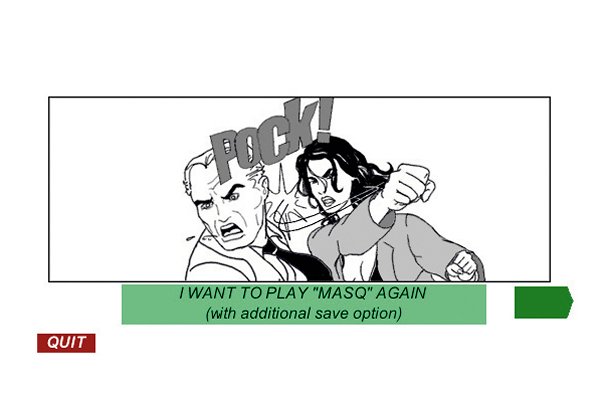Masq
If Deus Ex had been a steamy soap opera
Like the single-conversation game Facade, Masq is an interactive drama rather than a game in the normal sense. But where Facade was an intriguing but ultimately rather unfulfilling experiment in trying to get an AI to comprehend and respond to typed inputs, Masq really works. It uses a very simple input system, an uncomplicated visual style and no audio, and that enables its creator to cater in more detail to a far wider variety of eventualities. It seems unlikely that so much depth could come from this basic multiple-choice interface, until you realize that, unlike an RPG, every one of these choices has an effect on the story.
She found out about Nikki, of course. She divorced us again. We didn’t care. But the way she found out - which we won’t spoil for you - was interesting in itself, and seemingly avoidable. So we replayed, brushed her off again, slept with Nikki again (and was rougher about it this time), and we pre-empted the consequences. It took a few tries to cater to every eventuality, remove every piece of evidence, silence every witness, but eventually we got away with it. And knowing Susan better for the many times we’d rubbed her the wrong way, we found we instinctively knew how to rub her the right way. Soon, for the first time in our lives with her, we made love. Masq might not describe itself as a game, but we had gamed it: we’d maximized our bonuses and minimized my damage, and by our newly invented Man Metric, we’d won. “Oh!” Susan groaned. We felt empty.

Weekly digests, tales from the communities you love, and more


